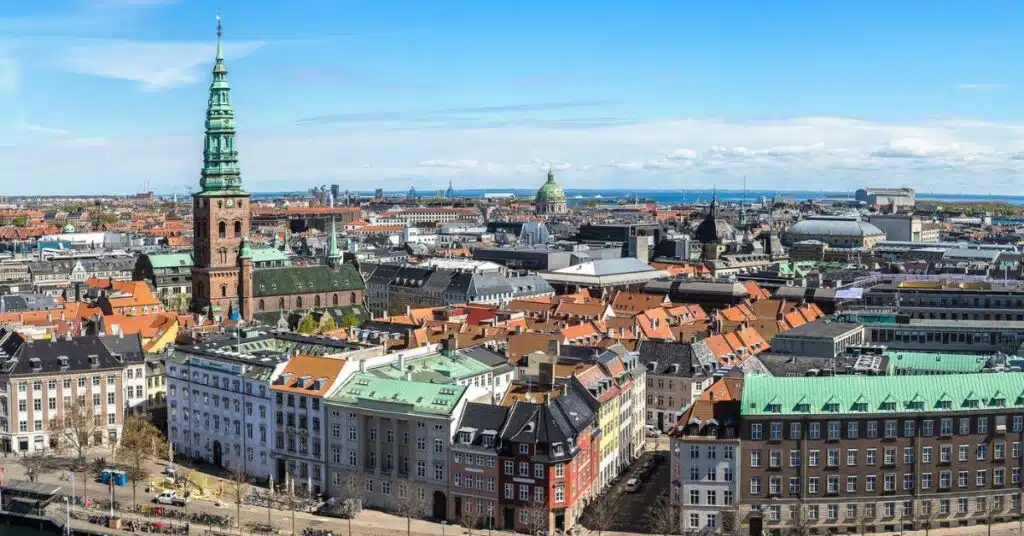Which country offers the best work-life balance?
Every person looking for a job has this question on their mind and with recent statistics showing that more than three-quarters of employees have suffered burnout in their current roles, this question gains even more importance.
Remote, an employer of record specialists helping organisations embrace and set up distributed teams, has not only found out the country offering the best work-life balance but argues in favour of writing this term the other way around.
They argue that the attitude should be “life first, work second” and have thus coined an applicable phrase, life-work balance. Their global life-work balance index shows that Europe leads the way when it comes to life-work balance and this report could be a precursor to how employees and employers rank their workplace going forward.
What is the life-work balance?
Before we get to the country with the best life-work balance, it is important to note that the definition of work-life balance varies from person to person. Remote describes life-work balance as a measure in which an “organisation’s employees can perform their roles to the best of their abilities without impacting their personal lives.”
It explicitly states that families, health, and leisure time should be a priority for an employee and careers shouldn’t negatively affect these attributes.
The report further notes that countries prioritising and promoting a healthy balance between life and work can create an environment where people can achieve a better overall quality of life, thus having more happier and engaged citizens.
One thing is clear: there is no right path to achieve a healthy life-work balance and the report suggests each person find the right balance for themselves by discussing any concerns or issues with their employer.
It also suggests that employees should know that being productive and being busy are not the same thing and there is no such thing as a perfect balance. In an interesting observation, the report also observes that employees should “never feel guilty” for taking time off.
With that as a pretext, the global life-work balance index by Remote analysed the world’s top 60 GDP countries by reviewing key indicators such as statutory annual leave, minimum statutory sick pay, statutory maternity leave, statutory maternity leave payment rate, minimum wage, healthcare status, happiness index score (via The Global Economy), average hours worked per work, LGBTQ+ Inclusivity (Equaldex), among others.
Apart from healthcare, all data points are ranked from highest to lowest and adjusted with index weights to reflect relative importance.
To know how Remote helps with your planned relocation, download the Remote Relocation Guide here.
Top 10 countries with the best work-life balance in the world
If you thought Spain, Denmark or Norway would take the crown for the country with the best work-life balance then you will be surprised by the result. Without further ado, here’s a look at the top 10 countries with the best work-life balance:

New Zealand
With an index score of 79.35, the numero uno position goes to the “Land of the Long White Cloud.” New Zealand takes the crown by scoring highly across several metrics. The island nation stands out for its generous statutory annual leave allowance of 32 days, a high rate of sick pay (80 per cent), and a universal government-funded healthcare system. If you are a Lord of the Rings fan then New Zealand already ranks high on your minds.

Spain
The country known for La Sagrada Familia, the annual tomato fight, and a football frenzy take second place in Remote’s global life-work balance index. With a generous statutory annual leave of 36 days, Spain knows how to put life before work and it also has the shortest working weeks on average. Remote also ranks the Spanish capital Madrid as the second best destination for remote work.

France
Third on this list is France and it falls behind Spain by a small margin thanks to its 36 days of statutory annual leave, and a generous minimum wage compared to a worldwide average. The introduction of the right to disconnect in 2017 and the general attitude of French businesses towards life-work balance propels the country to this position. It certainly helps that France is also home to world-famous landmarks and its culture is “synonymous with high fashion, art, and internationally-renowned cuisine.”

Australia
An overall index score of 73.71 puts Australia fourth in the global life-work balance index by Remote. It offers the highest minimum annual wage per hour of any nation and sickness pay is 100 per cent of salary. The country also stands out for its robust public healthcare system and a favourable year-round climate.

Denmark
With work-life balance as a foundation of its culture, it shouldn’t surprise anyone that Denmark ranks fifth on this list. Ranked second only to Finland in the Happiness Index, Danish workers get a generous 36 days of annual leave, 100 per cent sick pay, and universal healthcare support. The country is also one of Europe’s most LGBTQ+ friendly nations offering free education and healthcare.

Norway
With 35 days of statutory annual leave and 100 per cent sick pay, Norway follows Denmark as the sixth-best country on the global life-work balance index. A renowned government-funded healthcare system and its life-first culture allow the country to stand out in Europe. It also helps that Norwegian nationals are considered to be among the happiest people in Europe and it is among the most LGBTQ+ friendly nations in the continent.

The Netherlands
The land of canals ranks seventh on the list for being the second-happiest country in the global life-work balance index and strong support for LGBTQ+ rights. The Netherlands may lack a government-backed healthcare package and its annual leave rate is about average, but the country does offer a generous rate of maternity pay for parents.

The United Kingdom
The UK ranks eighth on the global life-work balance index on the back of its internationally renowned healthcare system, generous minimum wage compared to the worldwide average, and one of the highest global rates of statutory maternity leave. It also helps that it is the sixth-largest economy based on GDP offering a very high Human Development Index rating.

Canada
Its universal health care package and LGBTQ+-friendly environment put Canada in the ninth position with an overall index score of 67.91. Remote ranks the Canadian city of Toronto as the number one international destination for remote work due to its high quality of life, safety, and the multitude of leisure opportunities. The average working hours per week of 31.6 is relatively high on this list but the country makes up for it by offering 100 per cent sick pay and the highest score for LGBTQ+ inclusivity.

Brazil
With a generous rate of sick and maternity pay as well as a government-funded universal health care system, Brazil ranks tenth on the list. Its lively culture is home to diverse cuisine, colourful carnivals, up-tempo music, and an unrivalled passion for sports. This culture also adopts a healthy attitude to work and life translating into a high standing on the global life-work balance index by Remote.
Global life-work balance index: Five other trends to watch
- With 6 out of the top 10 and 12 out of the top 20 countries on the list, Europe leads the way when it comes to life-work balance.
- The United States ranks only 53rd on the list due to its lack of statutory annual leave, sick pay, and the absence of a universal healthcare system.
- When it comes to minimum wage, Australia and New Zealand top the list showing that workers in the Antipodean nations are the most generously paid.
- By clocking over 40 hours on average each week, the employees in Mexico, Malaysia, and Nigeria are the most overworked.
- The average number of statutory weeks of maternity leave across the world’s top 60 GDP countries is 16 weeks. Click here to read the full report.
Three Remote solutions that help businesses with flexibility
The global life-work index by Remote shows that this balance extends beyond work-from-home mandates and businesses need to do more to create equilibrium between work and home.
As a remote-first company, Remote knows how to create this equilibrium and its solutions are built in a way to help businesses to harness a healthy life-work balance. It offers free HRIS software that helps companies to manage their global workforce in one place while its global payroll helps companies who don’t use other Remote services to streamline their local and global payroll. Here is a look at three solutions from Remote that elevate life-work balance:
- Remote Talent: Launched late last year, Remote Talent is a marketplace for global job seekers and employers to find each other. It stands out from job boards through its integration with Remote’s global HR platform. With Remote Talent, employers can find candidates for open roles while also advertising their openings to candidates seeking hybrid and on-site roles. The full integration with the Remote platform means companies can open their roles to anyone, anywhere and with the planned integration of AI tools, Remote Talent promises to help candidates get discovered by top companies and find the perfect job regardless of their location.
- Remote EOR: An employer of record allows companies to hire legal, full-time employees outside the region where they are headquartered. With EOR, a company gets access to outsourced HR services for employees outside their home region and also avoids the hassle of hiring their own lawyers, accountants, payroll providers, and other professionals. While EOR handles payroll, tax, and compliance, the company gets access to international talent without the need to set up a local base in an international destination.
- Remote Contractor Management Solution: With its contractor management solution, Remote offers a single tool for companies to manage contractor status, contracts, time off, invoices, payments, tax forms, and more. Localised contracts, prevent compliance risks and allow businesses to hire contractors in more than 180 countries with support for over 70 currencies where 99 per cent of invoices are paid out in 3 business days.
To know how Remote helps with your planned relocation, download the Remote Relocation Guide here.









01
From telecom veteran to Dutch Startup Visa success: The Jignesh Dave story